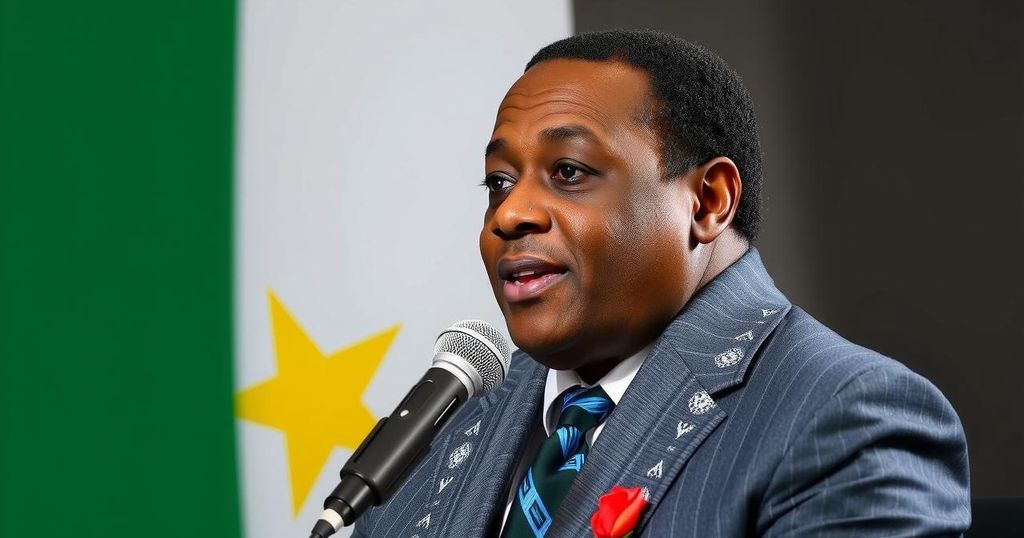Kofi Amoabeng, founder of defunct UT Bank, has expressed his desire to become the president of Ghana, emphasizing the need for reforms in the country’s democratic system. He argues that the current governance model hampers progress and leads to corruption, advocating for a reevaluation of electoral processes. Additionally, he calls for creating a favorable business climate as vital for national economic growth.
Prince Kofi Amoabeng, the founder of the now-defunct UT Bank, has articulated his long-standing aspiration to ascend to the presidency of Ghana. In an interview with Konnected Minds, he expressed his belief that this dream can ultimately come to fruition. Amoabeng pointed out that while he appreciates democratic governance, he feels it requires a critical reevaluation to address Ghana’s unique challenges effectively. He asserted, “We have democracy, and that dispensation will never get us out of this mess.” He elaborated on the pervasive influence of political parties, emphasizing that their need for substantial financial resources often leads to corruption as leaders find themselves in significant debt upon taking office. In discussing the electoral process, Amoabeng challenged the conventional principle of “one man, one vote,” suggesting that such a system has failed to produce effective leadership in Africa. Instead, he proposed that a reformed system could be adopted where a limited class of voters, determined by a referendum, is authorized to elect the president. Additionally, he appealed for a more conducive environment for economic growth in Ghana, attributing the nation’s challenges to the intertwining of politics and business. According to him, a nation’s prosperity hinges on the success of its businesses, and thus, politicians must cultivate conditions favorable for business development. Kofi Amoabeng’s candid insights not only reflect his personal ambitions but also serve as commentary on the broader socio-political landscape in Ghana, advocating for necessary reforms in governance to facilitate national progress beyond political patronage.
The commentary stems from Kofi Amoabeng’s reflections on the current political framework in Ghana, particularly regarding the limitations of the democratic system. His founding of UT Bank places him in a position to critique the intersection of politics and banking, especially in light of the institution’s eventual collapse, which occurred when the Bank of Ghana revoked its license due to insolvency, leading to significant implications for the banking sector at large. His experiences as a military officer and business leader provide him a unique perspective on governance and economic health in the country.
In summary, Kofi Amoabeng’s ambition to lead Ghana as president underscores a critical perspective on the existing political landscape. His call for reforms in the democratic process and emphasis on creating an environment conducive for business growth reflect his broader vision for Ghana’s future. Moreover, his critique of political influences on economic progression serves as a compelling argument for re-evaluating governance in the country to foster genuine development.
Original Source: www.ghanaweb.com






